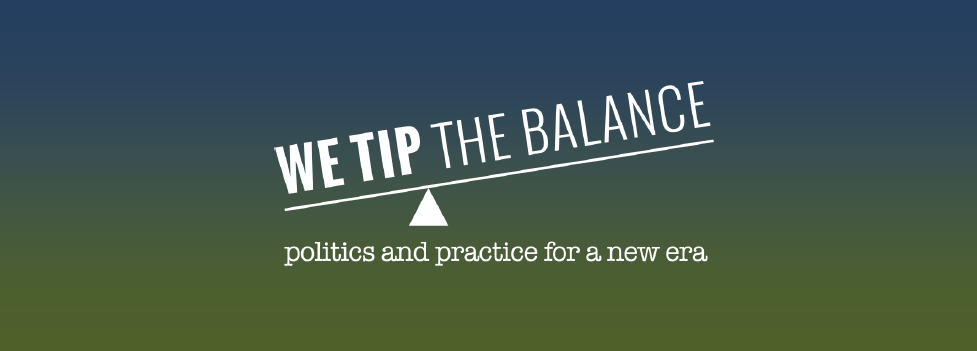Not so far on the horizon sits a new era. What it will be like is still yet to be determined. If we're to build a world we would want to live in together in this new terrain, we'll need to be learning together about change itself and applying that learning to ourselves and in our communities.
We Tip the Balance offers an integrated approach to social change for breaking through personal, interpersonal and cultural barriers to a shared future in a world we want to live in with each other.
Together we learn how to check our beliefs, become ever-more critical thinkers, build our emotional capacity and orient toward action. In the process, we acquire an embodied practice in the process of change and the politics of becoming. This is a way to become aware of our own stories and the stories of others. From them, we can distill a vision to negotiate with each other toward. We can learn from each other what it will require.
At We Tip the Balance, we learn together how each of us can participate more effectively in the cultural transformations upon which our collective survival and well-being depend. This work is personal, it's political, and it's about becoming more effective change makers.
Come explore politics and practice for a new human era through learner-centered, historically-based explorations of new ways of doing, being, and relating. Together we acquire information, tools and skills for tipping the balance toward the best ways forward with our families, neighborhoods, workplaces, organizations and institutions.
"
Mich creates a supportive, evolving, interactive learning experience that is as practical as it is personal. It's not academic, but intellectual and thought provoking.
Judy Springsteen
/ Study Group Participant
"
Mich's work is a fascinating amalgam of intellectual and experiential activity that possesses tremendous potential for stimulating and challenging those invited to participate.
Dan Soloff
/ Cultural Studies Professor
"
Mich shows us how political meaning is made and challenges us to investigate our locations, our work in the world, and what systems our work serves or challenges.
Helen Klonaris
/ Study Group Participant
